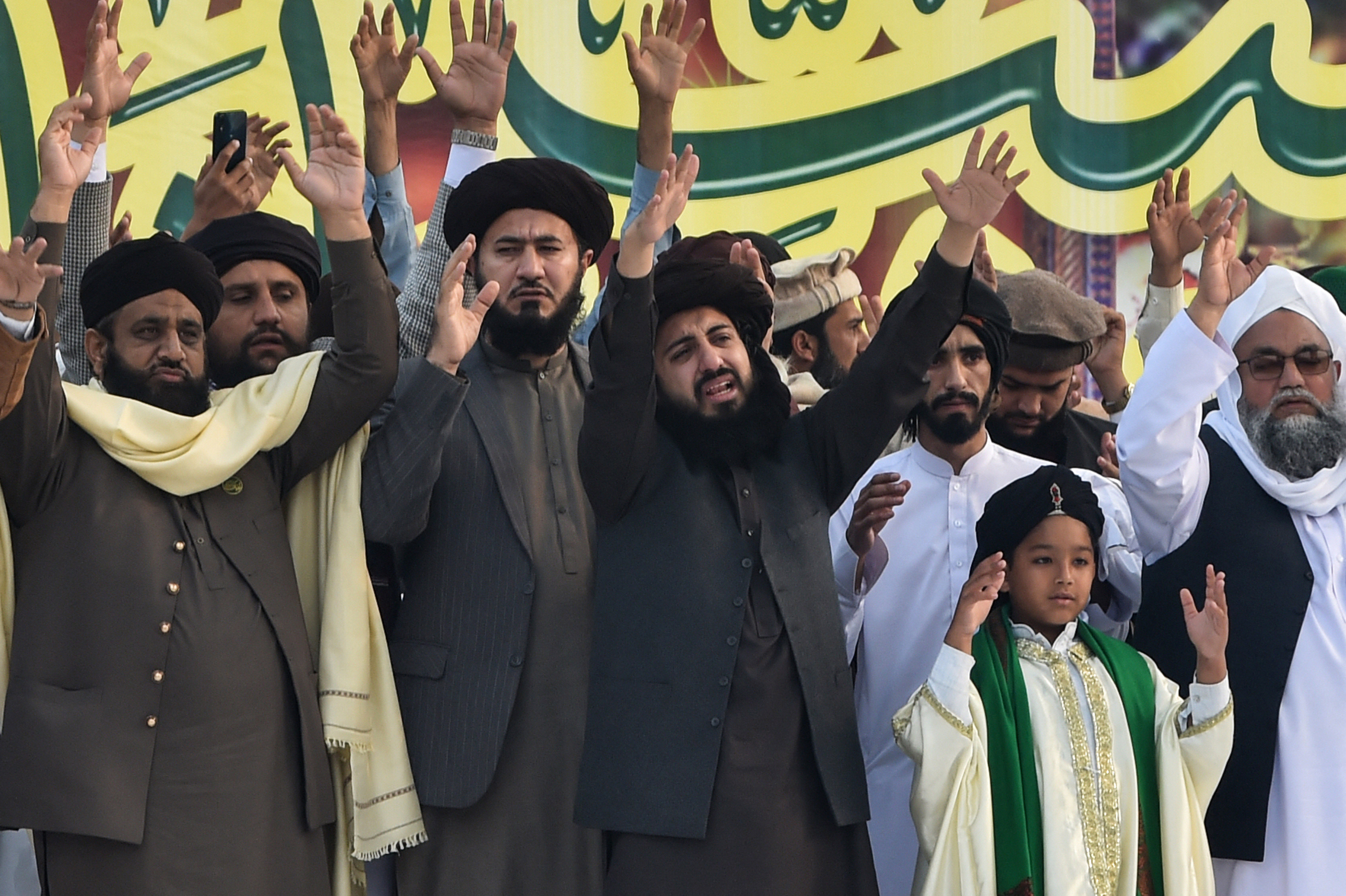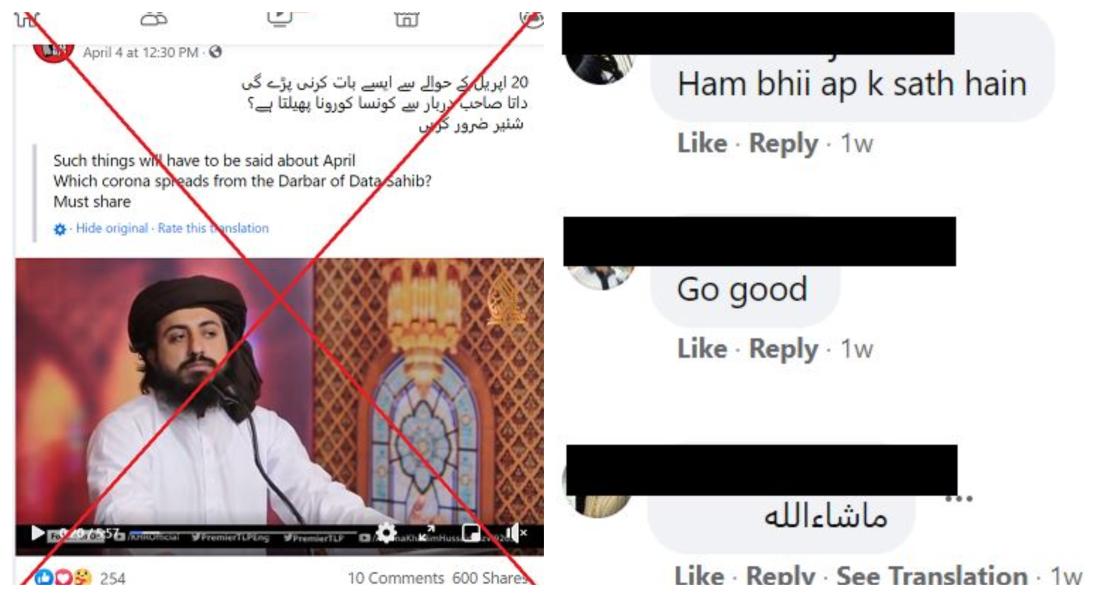
Radical Pakistan party leader misleadingly claims praying at Muslim shrine can cure Covid-19
- This article is more than four years old.
- Published on April 22, 2021 at 06:30
- 2 min read
- By Wasi MIRZA, AFP Pakistan
The video was posted here on March 27, 2021 on YouTube. It has been viewed more than 50,000 times.
The video shows the leader of the Tehreek-e-Labbaik Pakistan (TLP) party, Saad Hussain Rizvi, criticising measures by the Pakistani government which he claims have negatively affected his party.
Speaking in Punjabi, he rhetorically questions the effectiveness of a government-mandated closure of the Data Sahib shrine -- one of the oldest Muslim shrines on the subcontinent -- in the Pakistani city of Lahore due to the coronavirus.
“Brother, what corona would spread from Data Sahib [shrine in Lahore]?” he says. “Those with the coronavirus would go there and say ‘I’m healed’. That’s called believing and having faith”.

Screenshot of the video with the misleading comments. Taken on April 15, 2021.
Data Sahib, together with 547 other shrines in the province of Punjab were closed until April 15, 2021 due to rising coronavirus cases in Pakistan. Pakistani media outlet Geo News reported on the closures here.
The video was shared several times by users who appeared convinced by the claim, repeating the phrase, “What corona would spread from Data Sahib?” in their posts’ captions. It was shared on Twitter in March 2021 here, here, here and here; and on Facebook in April 2021 here, here, here and here.
Below is a screenshot of one of the posts (L) and some comments from users who appear to believe the claim (R):

Screenshot of one of the posts sharing the video (L) and some of the comments (R). Taken on April 16, 2021.
The claim is misleading: there is no credible evidence that prayer alone can cure Covid-19. Pakistani authorities have warned people against attending large gatherings in a bid to curb the spread of the coronavirus.
According to a guideline on social distancing issued by Pakistan’s Ministry of National Health Services, individuals should “avoid large and small gatherings in public spaces like restaurants, parks, libraries and other such venues to reduce the occurrence of transmission”.
In separate guidelines issued for religious holidays, the ministry advised those with Covid-19 or symptoms of Covid-19 not to attend religious processions.
In April 2020, a religious gathering in Lahore attended by more than 100,000 people led to tens of thousands being quarantined by the Pakistani government, AFP reported here.
The Centers for Disease Control and Prevention (CDC) in the US offers some guidelines on how to hold religious events safely but ultimately recommends that people should avoid large gatherings.
“All countries with community transmission should seriously consider postponing or reducing mass gatherings that bring people together”, reads a guideline on mass gatherings issued by the World Health Organization (WHO).
Copyright © AFP 2017-2026. Any commercial use of this content requires a subscription. Click here to find out more.
Is there content that you would like AFP to fact-check? Get in touch.
Contact us




